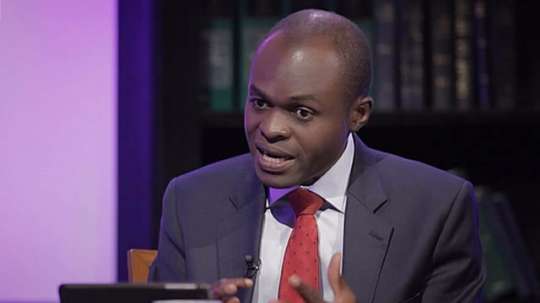Renowned Ghanaian lawyer Martin Luther Kpebu is calling for Ghana’s constitution to be rewritten to reflect the true independence of the state.
Alluding to the fact that no politician is an angel, he says certain provisions in the constitution defy the logic that human beings can overstep their boundaries if they have power and the constitution provides a loophole.
According to him, the 1992 Constitution looks like a document codified to guide the ideal leader described in “Plato’s Republic” as the Philosopher King, who is nearly impeccable in character.
Speaking on the KeyPoints on TV3 on Saturday, May 3, 2025, Mr. Kpebu indicated that Ghana’s constitution was presumably made to favour the late President Rawlings and should be altered, now that he has been gone from the scene for some time.
“…so, now that Rawlings has been off the scene for some time, we need to rework it and give stronger independence because the politicians are not angels, none of us sitting here too is an angel. So, we need to write the constitution in a manner to reflect that we are human beings not angels,” he stated.
The private legal practitioner’s comments stemmed from the role the President plays in the ousting of the Chief Justice, who also heads another arm of government presumed to be equal to that of the Executive.
He explained that the nature of the Constitution and the power it grants the President makes it a “buy-one-get-one-free” situation, where the Executive wields significant power to control the Judiciary due to the appointments the President can make, aside from the Judiciary depending on the Executive to function.
Mr. Kpebu explained that the situation deprives Ghana of a true separation of powers, essential for a functional democratic polity.
“If you talk about separation of powers, and you can talk about the head of the Executive, play a crucial role in the removal of the head of a coordinate branch, ie the judiciary, then it means that we almost have no separation of powers.
“When Chief Justice Torkornoo wrote the letter to Akufo-Addo last year and we had to debate, –that’s the list of five [justices] –I kept using this phrase that in Ghana our constitution is modeled in such a way that ‘you buy one you get one free’. You buy the Executive, you’re the President, then you get the Judiciary for free through the appointments and also through financial inducements,” he explained.
His comments come on the back of the suspension of Chief Justice Gertrude Araba Esaaba Sackey Torkornoo, by President John Dramani Mahama. The decision followed the establishment of a prima facie case in response to three separate petitions seeking her removal from office.
The decision, in line with Article 146(6) of the 1992 Constitution and taken in consultation with the Council of State, was announced on Tuesday, April 22, 2025, marking a significant moment in Ghana’s judicial history, as the head of the Judiciary faces an inquiry into her conduct.
Although the specific allegations contained in the petitions have not been publicly disclosed, they have stirred widespread debate within the legal and political circles, raising questions about judicial accountability and integrity of the judiciary’s leadership.
In accordance with constitutional procedures, Chief Justice Torkornoo was furnished with copies of the petitions and given 10 days to respond, which she submitted on April 7, 2025.
Following a review of the response and further consultations, the President determined that a prima facie case had been established. Consequently, a five-member committee was constituted under Article 146(6) to investigate the matter.
The committee is composed as follows:
Justice Gabriel Scott Pwamang, Justice of the Supreme Court – Chairman
Justice Samuel Kwame Adibu Asiedu, Justice of the Supreme Court – Member
Daniel Yaw Domelevo, Former Auditor-General – Member
Major Flora Bazwaanura Dalugo, Ghana Armed Forces – Member
Professor James Sefah Dzisah, Associate Professor, University of Ghana – Member
Per Article 146(10) of the Constitution and upon the advice of the Council of State, the President issued a warrant for the suspension of the Chief Justice pending the outcome of the committee’s investigations.
Martin Kpebu added that the constitution gives too much power to the Executive, citing the notion that it was written to appease the late President Rawlings, and called for it to be amended since Rawlings is no longer in the picture.
GBA’s statement on suspension of Chief Justice could pass for an appeal not resolution – Kpebu













